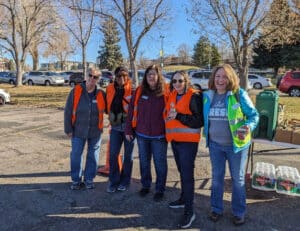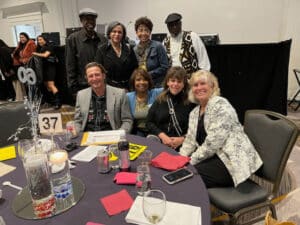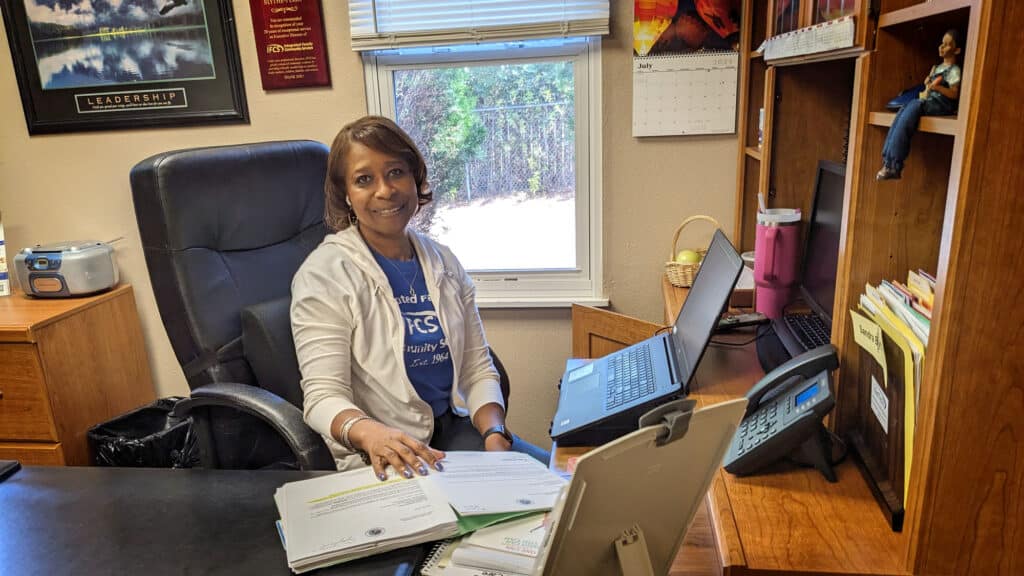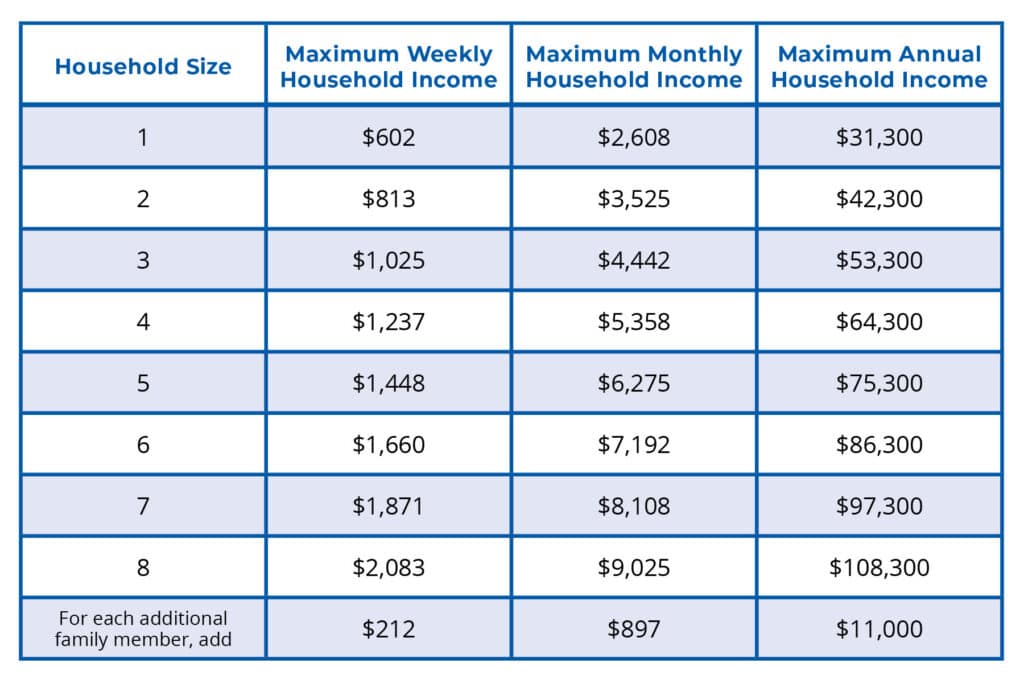Integrated Family Community Services has served millions of people over the past six decades. The organization has made significant contributions and has evolved over time to meet the needs of the community it serves. Sandra Blythe-Perry has been IFCS’ Executive Director since 1997 and has seen and directed much of this evolution firsthand. In an interview, she unpacked IFCS’ 60 years, with historical context and some personal details that tie together the past with a vision for the future.

The Founding Years
IFCS was established in 1964. In that year, the Civil Rights Act was signed by President Lyndon Johnson, outlawing discrimination based on race, color, religion, sex, or national origin. The most famous person in America was Martin Luther King, Jr., and the most famous people were The Beatles.
In this year, Maida Navis, a resident of south metro Denver, noticed that some of her neighbors needed additional assistance. Children in the neighborhood went without necessities, working families were struggling to make ends meet, and elderly residents were losing their independence. Mrs. Navis organized local leaders to launch a “Neighbors Helping Neighbors” initiative, which resulted in the creation of Inter-Faith Task Force for Community Services (IFTF).
1964 was also the year that Sandra Blythe-Perry was born; in fact, she could be that little baby in the photo we have of Maida Navis. (Happy 60th, IFCS and Sandra!)
In order to assist struggling neighbors in becoming independent—some for the first time—the task force offered services right from Maida’s garage. Early leaders were committed to offering support that was always a hand up rather than a handout. By 1968, IFCS was recognized as the “official poverty agency” for south metro Denver.

Growth & Expansion – The 1970s and 1980s
In 1972, the groundbreaking for the new Inter-Faith Task Force for Community Services building took place. Throughout the 1970s and 1980s many programs and services were implemented to make a meaningful and lasting impact on addressing food insecurity and other issues associated with poverty. IFCS gained momentum by attracting more volunteers and supporters to advance the mission.
During these decades, Sandra grew up in a family of 7. Her mother was a registered nurse, and father was a chef. She knew her parents worked hard to meet everyone’s needs, and she recalls a formative memory: When chosen as a majorette in her school band, Sandra was excited but anxious about the cost of the uniform and boots she would need. Her mother found her worrying about how the family might afford these items and assured Sandra that it was not her responsibility to figure out where the money would come from. She sent Sandra to get the uniform and boots with the confidence that she was supported in actualizing her dream; her parents would find a way to provide financially. This experience would color and ultimately guide Sandra’s professional career as leader of a nonprofit offering basic human services and enrichment programs to low-income people, helping thousands over the years find the confidence to navigate difficult situations.
 Challenges and Resilience – 1990s
Challenges and Resilience – 1990s
During the 1990s, the nonprofit sector expanded in Colorado, resulting in increased competition for limited funding resources. IFCS had to differentiate itself and demonstrate the unique impact of its programs to attract and maintain financial support.
In 1997, Sandra was hired as IFCS’ executive director and took on the challenge of moving the organization into the digital age. She remembers seeing the staff using carbon paper and began IFCS’ shift toward more advanced, updated strategies. The adoption of new technologies involved significant costs for IFCS: acquiring and implementing computer systems, software, and other technological tools required financial resources that were a struggle to secure. Staff were also under-paid, and Sandra saw an injustice in asking employees to provide services that they themselves were eligible for; she began working to provide livable wages and benefits for her team.
One of Sandra’s primary goals, as IFCS’ new executive director, was to make a more impactful difference in the community for those needing assistance, as well as in the lives of those dedicated to IFCS’ mission as volunteers and supporters. She searched out new grants and funding sources, hired staff to improve fundraising, assembled a working board that was eager to contribute ideas, and adapted operations to be more welcoming and communicative with community members who needed the assistance IFCS was established to provide.
 Impact and Innovation – 2000s
Impact and Innovation – 2000s
The 2000s saw the increased use of email as a communication tool for IFCS to send newsletters, updates, and fundraising appeals; to improve our ability to connect with supporters more efficiently than traditional mail. IFCS started exploring online donation platforms and allowing supporters to make contributions through the internet. As the internet became more accessible, IFCS launched its websites to provide a platform for sharing information about the organization, its mission, and ongoing initiatives.
In 2016, Inter-Faith Community Services changed its name to Integrated Family Community Services to better serve the changing community demographics, adjust to shifts in corporate philanthropy, and to compete with competitors for funding. The addition of “Integrated” to the name was also fitting as IFCS became more and more integrated in the community: networking expanded the organization’s reach and growth, and services became more tailored to actual needs of people who were appearing at IFCS’ doors. Sandra recalls, “The needs had always been there, but we adapted our technology, communication methods, and terminology to better reach those who needed our help.”
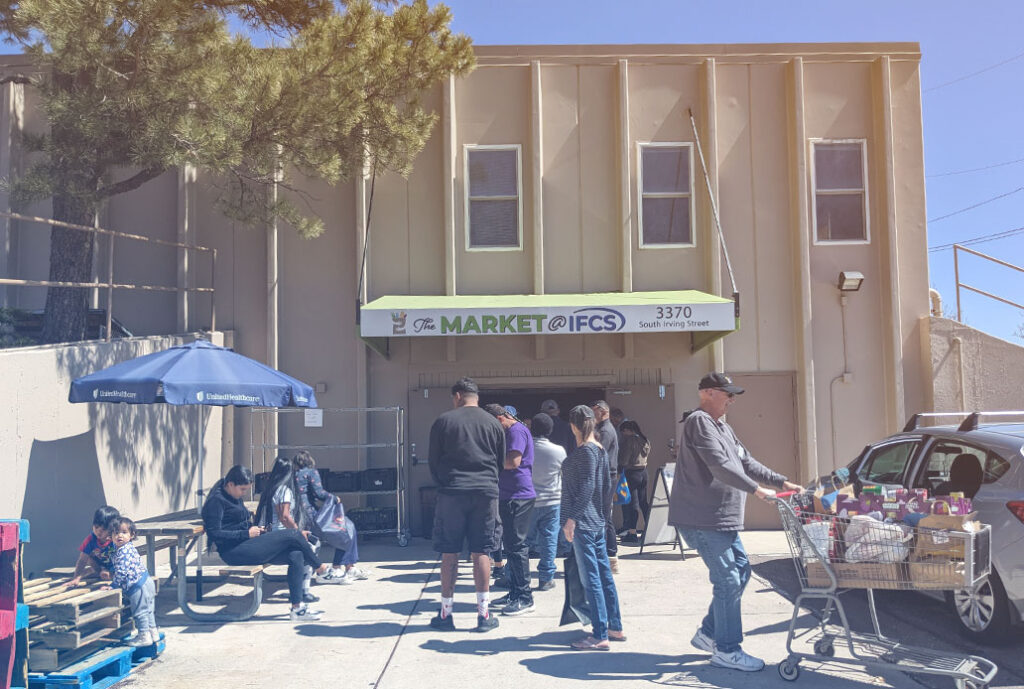
Current Years – 2020s
Today, stubborn inflation rates, exorbitant food and energy prices, and relentless rental costs have become the new norm. Also concerning is that funding for assistance programs doesn’t cover the full expense of administering such benefits. As a leader who cares deeply about nourishing lives while ensuring that her staff’s health and happiness are provided for, Sandra is always on the lookout for new ways to solve problems. She’s willing to try new things, and personally takes on additional work, to help people actualize their dreams. IFCS has developed and grown during her tenure so far – the number of people served, the number of engaged volunteers, and the amount donated by dedicated supporters, which has nearly tripled since 1997 – and Sandra maintains that her goals haven’t really changed much. She consistently asks, “What will help people find economic security? How can they become self-sufficient? How can they grow in hope and confidence?” A large portion of the solution involves “knowing that IFCS is here to support them, to take care of them while they’re here… IFCS’ mission is to show compassion for all who visit us, and we acknowledge their bravery while doing what we can to help.”
As an organization looking back on a 60-year partnership with the community, IFCS recognizes that collaboration is central to effectiveness. Celebrating this milestone year since IFCS’ foundation is cause for renewing the commitment to serve those who most need help: to continue the work of alleviating hunger, offering compassion, and helping families and seniors out of the downward spiral of poverty. Sandra believes that making the right connections, building trusting relationships that can support IFCS, and collaborating to form a stronger community are all key ingredients in the recipe of continued effectiveness. Just as her parents assured the young Sandra aspiring to lead a marching band, she now assures IFCS’ participants and supporters that building networks of collaboration will sustain the important work of transforming lives for years to come.
Celebrate with Us!
IFCS has served millions of people over the past sixty years, and keeps growing and improving, constantly adapting:
- Building Updates: We’ve opened up some walls to create a more hospitable, welcoming, and functional space. Through in-kind donations and partnerships, we’ve also updated segments of our aging building and property and streamlined large food deliveries.
- Team Development: We strive to welcome all who need support, and to provide care and compassion without judgement. To best serve our Spanish-speaking participants, we make it a priority to have bilingual staff available in the Market and for program navigation. Additionally, ongoing education helps our team learn – and train our volunteers – to create a culture of diversity, equity, and inclusion.
- Digital Growth: We are making updates to improve our website’s speed, which directly affects program access and efficiency. We’re also adding online, meaningful stories of impact that we hope will nourish our supporters’ knowledge while attracting new corporate sponsors and donors into partnership.
In closing, Sandra shares, “I am extremely grateful for each and every one of you. Because of you, IFCS is nourishing lives and building stronger communities every day. There is so much to celebrate, thanks to your dedicated partnership.” The needs continue, and responding effectively is dependent on financial resources: please help IFCS grow this network of support by telling others about this important work of nourishing lives. There are numerous ways to assist, to ensure that IFCS can keep providing a safety net for people in need.
